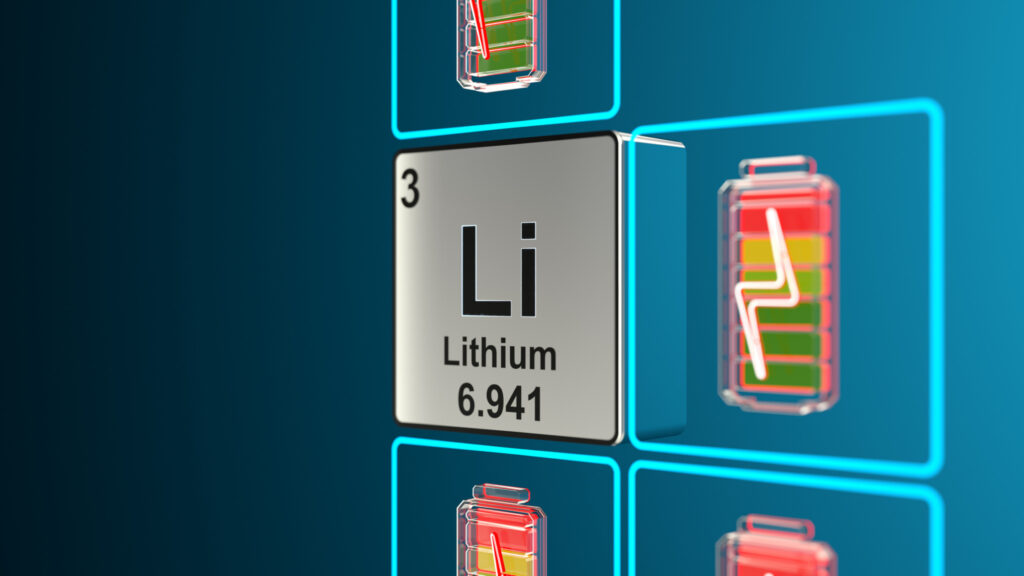Will wars be fought over rare minerals?
There’s something missing in all the enthusiastic chatter about electric vehicles, and it’s a huge deal. Like monumental. With the potential to change the world order. I’ll get to that in a minute.
At the moment you’d be forgiven for thinking that every vehicle on the continent, even on the planet, will soon be driven by electric motors powered by on-board plug-in batteries. The hype is that strong, that loud. For cars anyway. Helped by various kinds of governmental urging – though not serious financial enticements here in Canada – the four-wheel world’s electrification looks unstoppable and seems to have sped up every time I look at it.

Want scale on that? Look at Chinese electric vehicle and battery manufacturer BYD, which makes buses and heavy trucks sold in growing quantities in the U.S., plus a zillion cars a year. Its net profit in the second quarter of 2022 grew by 198% compared to the same period last year to about US$400 million. Not revenue, profit!
BYD stopped producing and selling vehicles powered by internal combustion engines six months ago, not incidentally.
And California, for example, has just launched a ban on the sale of new gasoline-powered cars by 2035. It’s a bold move that will be followed by several other states, and it will have a massive effect on efforts to control climate change. I’d guess that its influence on other governments will be global, being the first to actually mandate zero-emission vehicles (ZEVs) rather than just promise to make that happen. It still needs approval by the EPA, but call it a done deal.
Note that it doesn’t specify battery-electric vehicles (BEVs), which means hydrogen-electric (HEVs) and even hybrid vehicles are also in the mix. Hydrogen fuel cell development is slower, so the major effect here will be to boost the electric option. That doesn’t mean we should count hydrogen out, not at all. The world is investing US$1billion a day in its development.
While the plan mentions ‘trucks’ it means light-duty pickups, not heavy trucks. But some sort of mandate beyond limiting emissions certainly won’t be far behind.
The electric case
At a micro level the electric case can readily be made for light- and medium-duty local and regional trucks, in theory, because there are operational and cost benefits once there are sufficient chargers in place. According to ACT Research, 50% of vehicle applications will reach price parity between BEV and conventional powertrains by 2040, but it projects that battery-electric vehicles will make up 51% of the Class 4-8 vehicles sold in the U.S. and Canada by 2035.
Moving to a macro assessment, lots of people think that our electrical grids aren’t ready to handle the coming demand. That readiness is actually pretty much there and no Canadian province will be too terribly challenged. A decade or so ago the non-profit organization Electric Mobility Canada looked at all this and concluded that Ontario alone, for example, “could accommodate 10 million BEVs recharging overnight with no additional generating capacity required.” Battery technology has grown by leaps and bounds since then and will improve even more so in the coming years, so no problem at the grid level.
But batteries are going to be a big-time issue and I think we’re in for some very rocky roads on that front as we leave fossil fuels behind. Economic prosperity now depends in one way or another on oil, but that will cease to be the case when the most valuable commodities are minerals like the lithium and manganese needed to make batteries.
“In climate-driven scenarios, mineral demand for use in BEVs and battery storage is a major force, growing at least 30 times to 2040,” says the International Energy Agency.
Scrambling manufacturers
Manufacturers are now scrambling to make deals to secure such supplies.
“Just this week,” according to The New York Times, “Volkswagen and Mercedes-Benz announced agreements with the Canadian government to get access to lithium, nickel, and other crucial metals and minerals used in batteries. Canada has abundant reserves of these materials, though most mines are still in the development stage.”
Truth is, while we may have such abundance, our resources pale in comparison to countries like the Democratic Republic of the Congo, Chile, Australia, and of course China.
Will wars be fought over rare minerals instead of oil? In fact, it’s not a crazy leap to think that could be the case. At the very least we’ll see some wild political maneuvering in the next decade or two. Like I said, a new world order is on the horizon.
Have your say
This is a moderated forum. Comments will no longer be published unless they are accompanied by a first and last name and a verifiable email address. (Today's Trucking will not publish or share the email address.) Profane language and content deemed to be libelous, racist, or threatening in nature will not be published under any circumstances.
This whole EV story is like watching lemmings run off the cliff. At some point the Gov seed money will have to stop, we are just going to run out it, and on that day EV will end. It seems at the moment as they lose control of the climate propaganda, the stories pushing the save the world with our products marketing blitz are getting even more unbelievable.
We do not have enough of certain minerals to go all electric fleets.. a mixture of fuels and power sources is much better 0